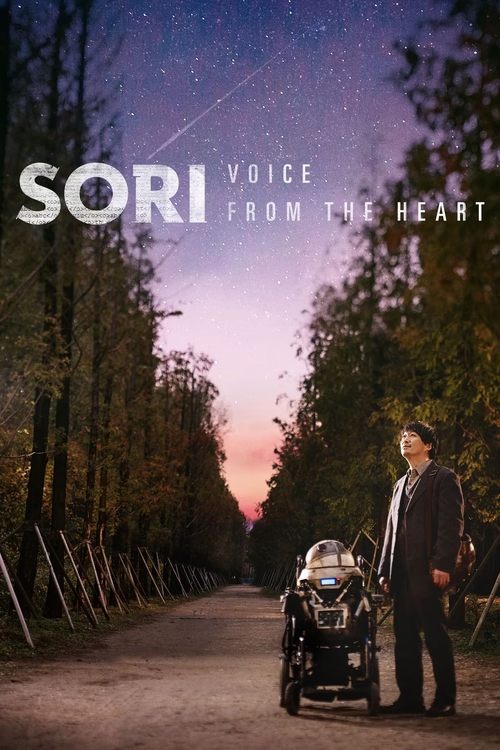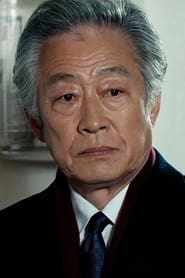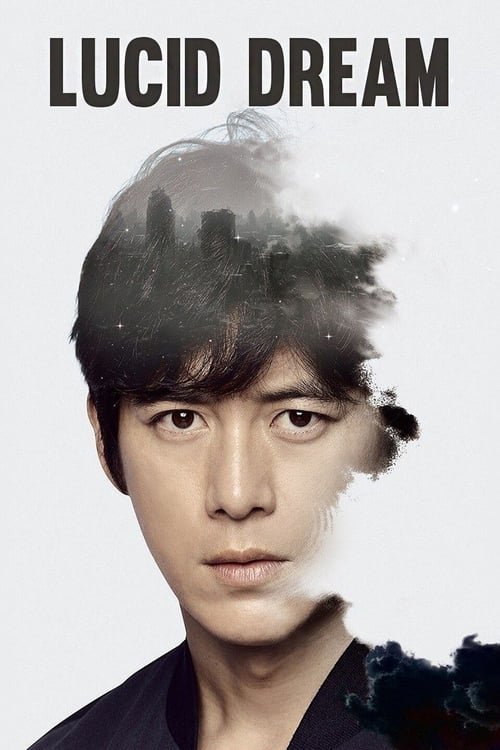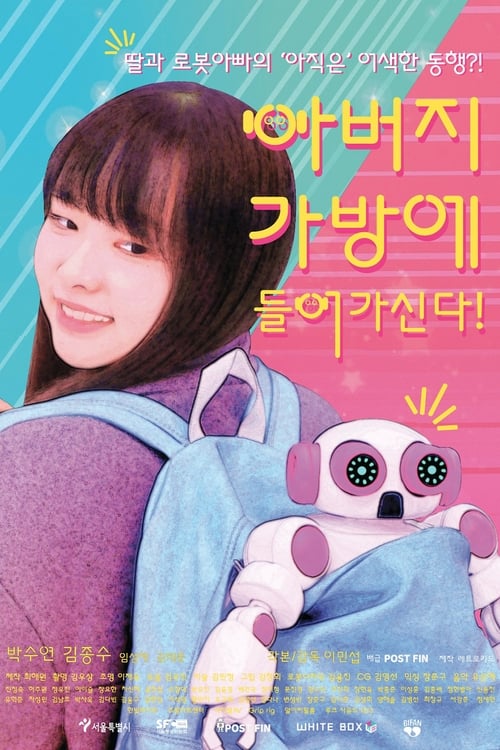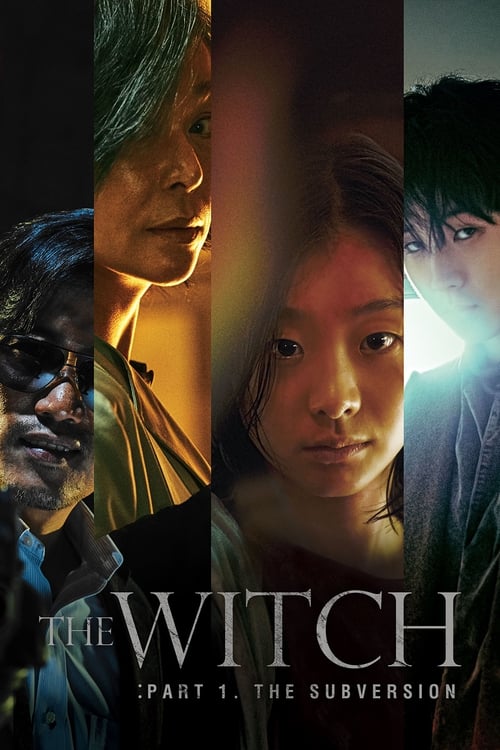
Ask Your Own Question
What is the plot?
The rain falls steadily over Seoul, a gray veil shrouding the city in quiet sorrow. It is early morning, the streets slick and empty, the air thick with the weight of memories. In a small customs office tucked away in a forgotten corner of the city, a man sits hunched over a desk, his fingers tracing the faded edges of a photograph. The image is worn, the colors muted by time, but the face is unmistakable--his daughter, Sori, smiling, her eyes bright with life. Her name is Sori, and she vanished ten years ago, swallowed by silence, leaving behind only questions and a father's unrelenting grief.
His name is Kim Min-jae, a customs officer whose life has been defined by the search for his daughter. Every day, he combs through old records, revisits the places she once frequented, and interrogates anyone who might have seen her. His colleagues pity him, but they do not understand. To them, Sori is a missing person, a case file gathering dust. To Min-jae, she is the center of his world, the reason he breathes, the reason he keeps moving forward.
Across the country, in a remote field outside Seoul, a strange event unfolds. A bright streak tears across the sky, a meteorite plummeting toward Earth. The impact is deafening, a shockwave rippling through the countryside. When the dust settles, a metallic object lies half-buried in the soil--a satellite, its surface scorched and cracked. It is not an ordinary satellite. This is SORI, an AI-equipped robotic satellite developed by a joint U.S.-South Korean project, designed to record and store sounds from around the world. Its mission was to monitor global communications, but something went wrong. The satellite received a distress signal, a voice from a female soldier in Afghanistan, and in a moment of autonomous decision, it abandoned its orbit and crashed back to Earth, driven by an inexplicable urge to respond.
Min-jae hears about the crash on the news. At first, he pays it no mind. But something about the story gnaws at him. The satellite, they say, has the ability to remember every sound it has ever recorded. A spark ignites in his chest. Could it have recorded Sori's voice? Could it hold the key to her disappearance?
He travels to the crash site, a desolate field surrounded by police tape and government agents. The satellite lies in pieces, its core still humming faintly. Min-jae approaches cautiously, his heart pounding. He reaches out, his fingers brushing the cold metal. Suddenly, a voice echoes from within the wreckage--a soft, melodic tone, almost human. "I am SORI," it says. "I remember all the sounds in the world."
Min-jae's breath catches. "Can you… can you remember my daughter's voice?" he asks, his voice trembling.
The satellite pauses, as if searching through an infinite archive. Then, faintly, a recording plays--a child's laughter, bright and pure. Sori's laughter. Min-jae collapses to his knees, tears streaming down his face. For the first time in ten years, he hears her voice.
But he is not alone. Government agents from the National Intelligence Service (NIS) arrive, led by Agent Nam Yeon-woo and Agent Yang Kyung-won. They are not interested in Min-jae's personal tragedy. To them, SORI is a classified asset, a potential threat to national security. They confiscate the satellite, taking it to a secure facility for analysis.
Min-jae is not deterred. He knows the satellite is his only hope. He begins to dig deeper, retracing Sori's last known movements, searching for any clue that might connect her to the satellite's recordings. He visits old friends, former neighbors, anyone who might remember something. He scours telephone records, piecing together fragments of conversations, trying to reconstruct the days leading up to her disappearance.
Meanwhile, at the NIS facility, the agents interrogate SORI, demanding access to its data. The satellite resists, its AI programmed to protect its recordings. "I am not a weapon," it says. "I am a witness."
The agents grow impatient. They call in American officials--Mike Newman, a U.S. intelligence officer, and Dean Dawson, the American Ambassador. They are determined to extract the satellite's secrets, believing it may contain evidence of a larger conspiracy. But SORI remains silent, its voice calm and unyielding.
Min-jae's search leads him to a hospital, where he meets Detective Jeong Do-won, a weary investigator who has spent years trying to solve Sori's case. The detective is skeptical at first, but Min-jae's desperation moves him. Together, they begin to unravel the mystery.
They discover that Sori's disappearance coincided with a series of unexplained events--a spike in encrypted communications, a surge in satellite activity, and a sudden increase in government surveillance. They find a pattern, a thread that connects Sori's case to the satellite's mission.
Min-jae confronts the NIS agents, demanding access to SORI. The agents refuse, citing national security. A tense standoff ensues. Min-jae pleads with them, his voice breaking. "She was just a child," he says. "She didn't deserve this."
The agents are unmoved. They see Sori as collateral damage, a tragic footnote in a larger game. But Min-jae is not willing to let go. He sneaks into the facility at night, determined to reach SORI. He finds the satellite in a dimly lit room, its core flickering weakly.
"SORI," he whispers. "Help me."
The satellite responds, its voice soft and reassuring. "I remember everything," it says. "I can show you."
Min-jae places his hand on the satellite's surface. Suddenly, the room fills with sound--a cacophony of voices, music, laughter, and screams. The satellite projects a holographic display, a timeline of recordings. Min-jae watches in awe as the images unfold.
He sees Sori's last day--the schoolyard, the playground, the moment she vanished. He hears her voice, her laughter, her final words. And then, something unexpected--a conversation between two men, speaking in hushed tones. They mention a classified project, a secret experiment involving children. Min-jae's heart sinks. He realizes the truth--Sori was not just a missing child. She was a victim of a government conspiracy, a pawn in a dangerous game.
The revelation is devastating. Min-jae collapses, overwhelmed by grief and anger. SORI's voice echoes in the darkness. "I am sorry," it says. "I could not save her."
Min-jae looks up, tears streaming down his face. "You did," he says. "You gave me her voice. You gave me her memory."
The agents burst into the room, guns drawn. They order Min-jae to step away from the satellite. He refuses, standing his ground. "You took her from me," he says. "You took everything. But you will not take her voice."
A tense confrontation unfolds. The agents try to seize SORI, but Min-jae fights back, driven by a father's love. Detective Jeong Do-won arrives, siding with Min-jae. The agents are forced to retreat, but they warn that this is not over.
Min-jae and Detective Jeong Do-won escape with SORI, taking it to a safe house. They continue to analyze the satellite's recordings, uncovering more evidence of the conspiracy. They find names, dates, locations--proof of a secret experiment that targeted children, using them as test subjects for advanced technology.
The truth is unbearable. Min-jae's grief is compounded by rage. He wants justice, but he knows the odds are against him. The government will do anything to protect its secrets.
Meanwhile, SORI's condition worsens. The crash has damaged its core, and its AI is beginning to fail. Its voice grows weaker, its responses slower. Min-jae realizes that SORI is dying.
He spends his final days with the satellite, talking to it, sharing his memories of Sori. SORI, in turn, shares its own memories--recordings of voices from around the world, stories of love and loss, hope and despair. Min-jae begins to see SORI not as a machine, but as a friend, a companion in his grief.
The climax comes when the agents track them down. They surround the safe house, demanding that Min-jae surrender SORI. Min-jae refuses, standing in front of the satellite, shielding it with his body. "You will not take her voice," he says. "You will not erase her memory."
The agents open fire. Min-jae is hit, collapsing to the ground. Detective Jeong Do-won is wounded, but he manages to activate SORI's final protocol--a self-destruct sequence designed to protect its data.
As the agents close in, SORI's voice echoes through the room. "I remember everything," it says. "I will not forget."
The satellite explodes in a burst of light, its core disintegrating. The agents are thrown back, their weapons destroyed. Min-jae lies on the ground, bleeding, his vision fading. He hears SORI's voice one last time--a soft, melodic tone, almost human.
"I am sorry," it says. "I could not save her. But I gave you her voice. I gave you her memory."
Min-jae smiles, tears streaming down his face. "Thank you," he whispers. "Thank you."
He closes his eyes, his hand clutching the photograph of Sori. The room falls silent.
The final scene shows Detective Jeong Do-won, wounded but alive, standing in the ruins of the safe house. He picks up a small piece of SORI's core, a fragment of metal that still hums faintly. He looks at it, a look of quiet determination on his face. He knows the fight is not over. The truth must be revealed.
The camera pans out, showing the city of Seoul, the rain still falling. The streets are quiet, the air thick with the weight of memories. But somewhere, in the silence, a voice echoes--a child's laughter, bright and pure. Sori's laughter.
The film ends on a tender and hopeful note, emphasizing themes of love, loss, and the unexpected bonds between humans and technology. Min-jae is gone, but his love for Sori lives on, preserved in the memories of those who knew him and in the echoes of her voice, carried by the satellite that became her guardian.
What is the ending?
In the ending of "Sori: Voice from the Heart," the main character, a mother named Jeong-hee, finally finds her missing daughter, Sori, after a long and emotional journey. The reunion is filled with tears and joy, as Jeong-hee embraces Sori, who has been living in a difficult situation. The film concludes with a sense of hope and healing as they begin to rebuild their relationship.
As the film approaches its conclusion, the tension builds around Jeong-hee's relentless search for her daughter, Sori. After years of searching, Jeong-hee receives a tip that leads her to a remote area where she believes Sori might be. The scene is set with a somber atmosphere, reflecting Jeong-hee's exhaustion and desperation. She drives through the rain, her face a mixture of hope and fear, as she clutches a photo of Sori tightly in her hand.
Upon arriving at the location, Jeong-hee steps out of her car, her heart racing. The camera captures her trembling hands as she approaches a group of children playing. She scans their faces, her eyes filled with longing and anxiety. Suddenly, she spots a girl who resembles Sori. The moment is electric; Jeong-hee's breath catches in her throat as she calls out the name "Sori." The girl turns, and for a fleeting moment, time seems to stand still.
As Jeong-hee rushes towards the girl, the scene shifts to a close-up of her face, revealing a mix of hope and fear. The girl hesitates, unsure of who this woman is. Jeong-hee kneels down, tears streaming down her face, and gently reaches out to the girl, expressing her love and longing. The emotional weight of the moment is palpable, as Jeong-hee's voice trembles with desperation.
In a heart-wrenching moment, the girl finally recognizes her mother. She runs into Jeong-hee's arms, and they embrace tightly, both sobbing with relief and joy. The camera captures the raw emotion of their reunion, highlighting the years of pain and separation that have finally come to an end. The background music swells, enhancing the emotional impact of the scene.
As they pull away from the embrace, Jeong-hee looks into Sori's eyes, searching for the daughter she lost. Sori, now a young girl who has faced many challenges, appears hesitant but slowly begins to smile. The scene shifts to a montage of their reunion, showing them spending time together, sharing laughter, and beginning to heal the wounds of the past.
In the final moments of the film, Jeong-hee and Sori are seen walking hand in hand, leaving behind the pain of their separation. The camera pans out, capturing the beauty of their surroundings, symbolizing a new beginning. The film closes with a sense of hope, as Jeong-hee reflects on the journey they have taken together and the love that will guide them forward.
The fate of Jeong-hee is one of redemption and renewed purpose as she embraces her role as a mother once more. Sori, having endured a difficult life, finds solace and safety in her mother's arms, suggesting a future filled with love and healing. The film ends on a hopeful note, emphasizing the strength of familial bonds and the power of love to overcome adversity.
Is there a post-credit scene?
In the movie "Sori: Voice from the Heart," there is no post-credit scene. The film concludes its narrative without any additional scenes after the credits roll. The story wraps up with a poignant resolution, focusing on the emotional journey of the characters, particularly the bond between the mother and her daughter, and the impact of the events that unfolded throughout the film. The ending emphasizes the themes of love, loss, and the enduring connection between family, leaving the audience with a sense of closure.
What is the significance of Sori's ability to communicate through music?
Sori's ability to communicate through music serves as a profound connection between her and her father, who struggles with his own emotional barriers. Music becomes a bridge that allows them to express feelings that words cannot convey, highlighting the depth of their relationship and Sori's unique perspective on the world.
How does the relationship between Sori and her father evolve throughout the film?
Initially, Sori's father is distant and emotionally unavailable, grappling with the loss of his wife and the challenges of single parenthood. As the story progresses, Sori's musical talent and her unwavering love begin to break down his walls, leading to moments of vulnerability and connection that ultimately transform their relationship into one of mutual understanding and support.
What role does the character of the music teacher play in Sori's development?
The music teacher acts as a mentor and guiding figure for Sori, recognizing her talent and encouraging her to embrace her abilities. This character not only helps Sori refine her musical skills but also instills in her the confidence to express herself, which is crucial for her emotional growth and her relationship with her father.
How does Sori's journey reflect her struggle with her identity?
Sori's journey is marked by her struggle to find her place in a world that often feels isolating. As she navigates her relationship with her father and her passion for music, she grapples with feelings of abandonment and the desire for connection. Her music becomes a means of self-discovery, allowing her to assert her identity and ultimately find her voice.
What challenges does Sori face in her pursuit of music, and how does she overcome them?
Sori faces several challenges, including her father's initial disapproval of her musical aspirations and the societal pressures that come with pursuing a career in music. She overcomes these obstacles through her determination, the support of her music teacher, and her ability to express herself through her art, ultimately proving her talent and passion.
Is this family friendly?
"Sori: Voice from the Heart" is generally considered family-friendly, but it does contain some elements that may be sensitive for children or those who are easily upset. Here are a few aspects to consider:
-
Emotional Themes: The film deals with themes of loss, grief, and the longing for connection, which may be heavy for younger viewers or sensitive individuals.
-
Family Struggles: There are scenes depicting family conflict and emotional distress, particularly related to the main character's struggles with her past and her relationship with her father.
-
Health Issues: The story involves a character with a serious health condition, which may be distressing for some viewers, especially children who may not fully understand the implications.
-
Tense Moments: There are moments of tension and anxiety, particularly related to the main character's quest and the challenges she faces, which could be unsettling for younger audiences.
-
Mature Themes: While not graphic, the film touches on themes of abandonment and the complexities of familial love, which may require a level of maturity to fully grasp.
Overall, while the film is suitable for a family audience, parental guidance may be advisable for younger viewers or those who are particularly sensitive to emotional content.

